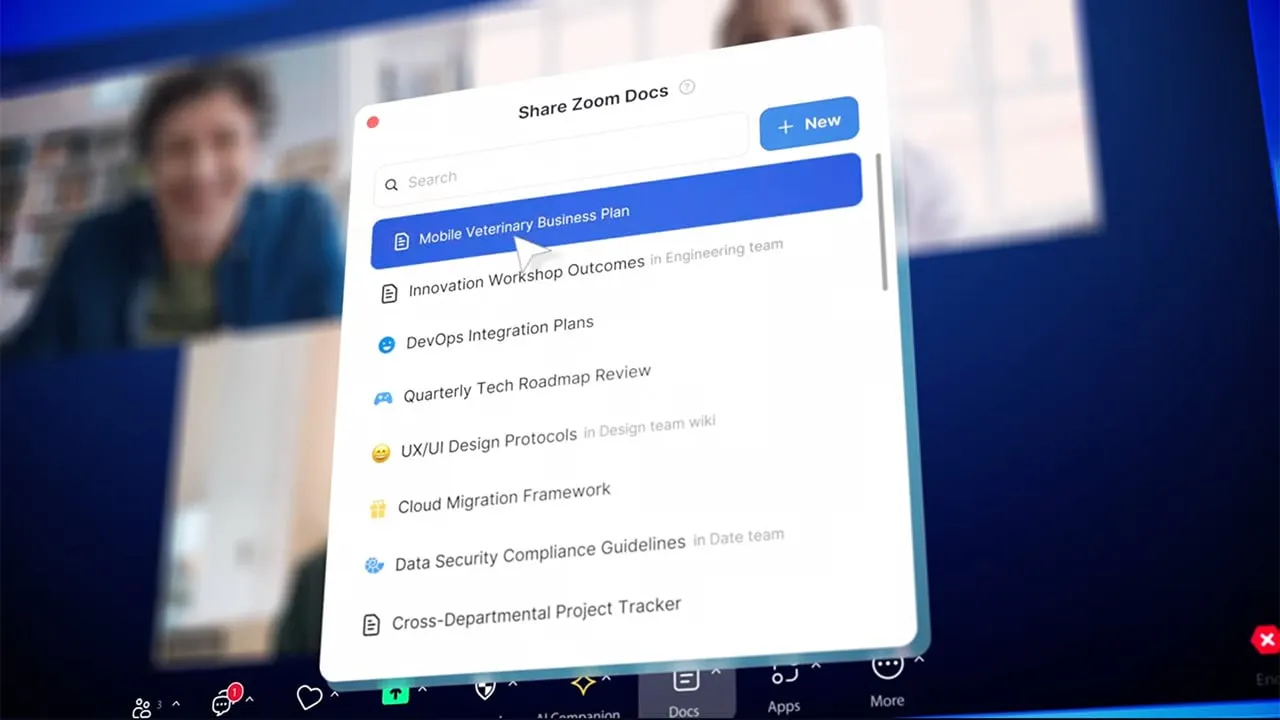Zoom is further expanding its horizons by launching Zoom Docs. This new collaborative document tool, announced Tuesday, is integrated into Zoom's workplace ecosystem and uses generative AI to help revise documents and create content based on meeting transcripts.
“Zoom Docs is our first Zoom Workplace product with generative AI built in from the ground up,” said Smita Hashim, Zoom's chief product officer, in the announcement. It effortlessly transforms information from Zoom Meetings into actionable documents and knowledge bases so that teams can stay focused on meaningful work.”
The move into collaborative document editing puts Zoom in competition with Google Workspace and Google Docs, as well as Microsoft 365, the cloud instance of its suite of business applications like Microsoft Word. Google and Microsoft also have videoconference tools that compete with Zoom in Google Meet and Microsoft Teams, respectively.
First announced in October 2023, Zoom Docs relies heavily on the company's investment in AI. The company claims that Zoom Docs can boost productivity by helping solve "critical challenges facing modern workforces, including time wasted on repetitive tasks, information overload, and facilitation of cross-functional alignment."
Zoom Docs is integrated into Zoom's core videoconferencing product, aiming to keep organizations that rely on Zoom for virtual meetings within its ecosystem. It allows users to "create, share, and co-edit docs during meetings" without leaving the meeting window. The company says it supports concurrent editing for up to 100 users.
The platform also allows users to customize the layout using content blocks, tables, and Kanban boards for project tracking. Zoom Docs is also compatible with various third-party services like Google Drive, Figma, and others, allowing users to embed content from these services.
It is unclear whether Zoom Docs supports file sharing or exporting to common document formats for offline reading.
Zoom Docs is available with all paid Zoom Workplace plans, and a limited version allows free users to create up to 10 shared documents and unlimited personal docs without AI Companion features.
Zoom became dominant as a videoconferencing platform during the COVID-19 pandemic, as businesses worldwide shifted to remote work. However, Microsoft and Google have a vastly larger customer base and a built-in advantage for their own integrated meeting and document products—which are also now enhanced with AI.
Edited by Ryan Ozawa.

